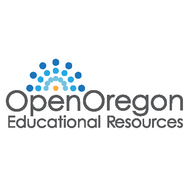Business Administration: Eco-Innovation & Social Entrepreneurship Course Materials and Syllabus
(View Complete Item Description)Business Administration: Eco-Innovation & Social Entrepreneurship Course Materials and Syllabus BA 278. Eco-Innovation and Social Entrepreneurship. Introduces the social, economic and environmental pillars of sustainability, and social entrepreneurship within the business environment with a focus on global, domestic and internal business methods, practices and policies. Investigates sustainable business, social innovation and intrapreneurship evolution and trends. Includes opportunities to interact with local social entrepreneurs, analyze initiatives, and develop market-based solutions to social problems. Examines individual and corporate decision-making and best practices. Includes team projects and a community-based service learning experience. COURSE OUTCOMES Upon successful completion of BA 278, the student will be able to: 1. Understand the fundamental definitions, concepts and methods of corporate social responsibility, environmental sustainability, social entrepreneurism and intrapreneurism. 2. Critically examine the complex and interconnected relationship between human economic behavior and the environment through a lens of sustainability and “the triple bottom line” (people, planet, profit). 3. Build an awareness of the impacts of environmental sustainability issues and policies on communities of diverse backgrounds, on the local, regional, national and international level, in order to interact with sensitivity, respect and a sense of responsibility to others and to the future. 4. Analyze claims about sustainable business and social entrepreneurial practices and policies critically. 5. Develop and apply writing, systems-thinking and analytical thinking skills effectively in the workplace.
Material Type: Lesson Plan, Module, Syllabus, Teaching/Learning Strategy













